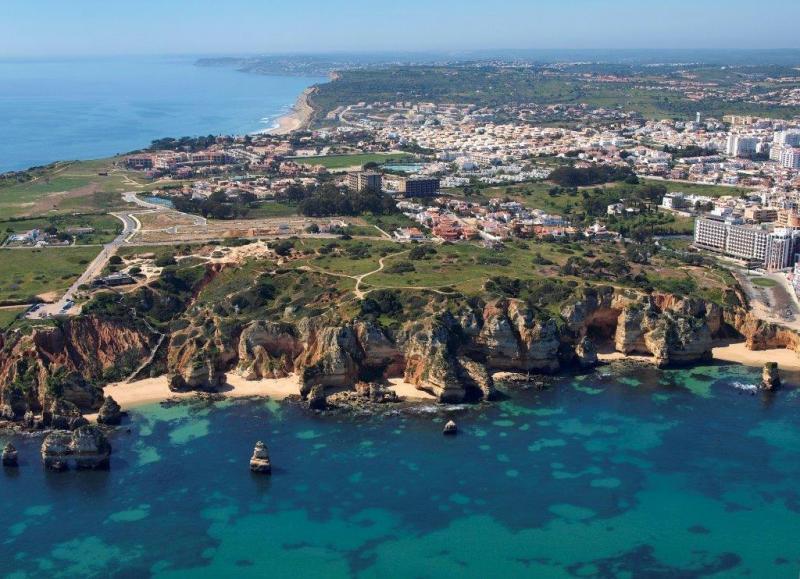Brexit’s Ongoing Impact on Algarve Property for UK Buyers
What exactly is Brexit?
Brexit, a combination of "Britain" and "exit," refers to the United Kingdom's decision to leave the European Union, which officially took effect in January 2020. This departure changed how UK citizens can live, work and invest in EU countries, including Portugal.
How Brexit Continues to Shape the Algarve Property Market
Brexit introduced legal and financial considerations for UK buyers in Portugal, including residency permits and taxation. While the Algarve remains a highly desirable destination, British buyers face evolving regulations. As we move through 2025, the long-term effects of Brexit are becoming clearer, influencing mortgage access, property demand and market trends.
Here’s what UK buyers should consider when purchasing property in the Algarve.
1. Visa & Residency Requirements
UK citizens can visit Portugal for up to 90 days within a 180-day period without a visa. However, longer stays or relocation require a residency permit. Common visa options include:
- D7 Visa (Passive Income Visa): Ideal for retirees and those with passive income (e.g., pensions, rental income). A stable income is required - check official sources for current thresholds.
- Digital Nomad Visa: Designed for remote workers earning at least four times Portugal’s minimum wage. Check the latest requirements at AIMA.
2. Market Trends
The Algarve property market remains strong, driven by foreign demand and limited supply. Key factors shaping the market include:
- Foreign Investment: UK buyers continue to play a major role, attracted by Portugal’s stable economy, climate and tax incentives.
- Short-Term Rental Demand: Popular tourist areas like Lagos, Albufeira and Vilamoura remain highly profitable for rental investments.
- Regional Price Variations: Prices in Quinta do Lago and Vale do Lobo are rising faster than in inland towns due to high demand for luxury properties.
Current Market Data:
- The average Algarve property price is €3,500 per m² (Q1 2025) – Idealista.
3. Tax Implications for UK Buyers
As non-EU investors, UK buyers face specific tax obligations:
- Property Transfer Tax (IMT): Ranges from 1% to 8% based on property value.
- Stamp Duty: 0.8% of the purchase price.
- Annual Property Tax (IMI): Typically 0.3% to 0.8%, depending on location and valuation.
- Rental Income Tax: A flat 28% tax applies to rental income for non-EU property owners.
For the latest tax rates and exemptions, Portuguese Tax Authority.
4. Mortgage & Financing Challenges
UK buyers can still secure mortgages in Portugal, but banks have tightened their policies post-Brexit:
- Higher Deposit Requirements: Non-EU buyers typically need 30%-40% down payments.
- Stricter Lending Criteria: Some banks impose additional financial scrutiny on UK applicants.
- Fluctuating Interest Rates: Rates vary, so comparing lenders is essential.
5. Currency Exchange Considerations
Since the UK operates outside the Eurozone, currency fluctuations can impact property costs. To mitigate risks:
- Use currency exchange services like Wise or Revolut to lock in favourable rates.
- Consider opening a Portuguese bank account for smoother transactions.
6. Travel & Healthcare: What UK Buyers Need to Know
Beyond property considerations, UK citizens investing in the Algarve should account for travel and healthcare access:
- Travel Restrictions: The 90-day limit within 180 days applies to UK nationals. Longer stays require a visa or residency permit.
- Healthcare Access: The UK Global Health Insurance Card (GHIC) covers short-term stays, but residents need private health insurance or access to Portugal’s SNS public system.
Conclusion
Brexit continues to shape the Algarve property market, influencing visas, taxes and financing. Despite these changes, the region remains a strong investment and relocation choice for UK buyers. Staying informed and working with experienced professionals can help navigate these complexities.
At B&P Real Estate, we’re here to guide you through every step of buying property in Portugal. Contact us today for professional support in finding the right investment in the Algarve.




















